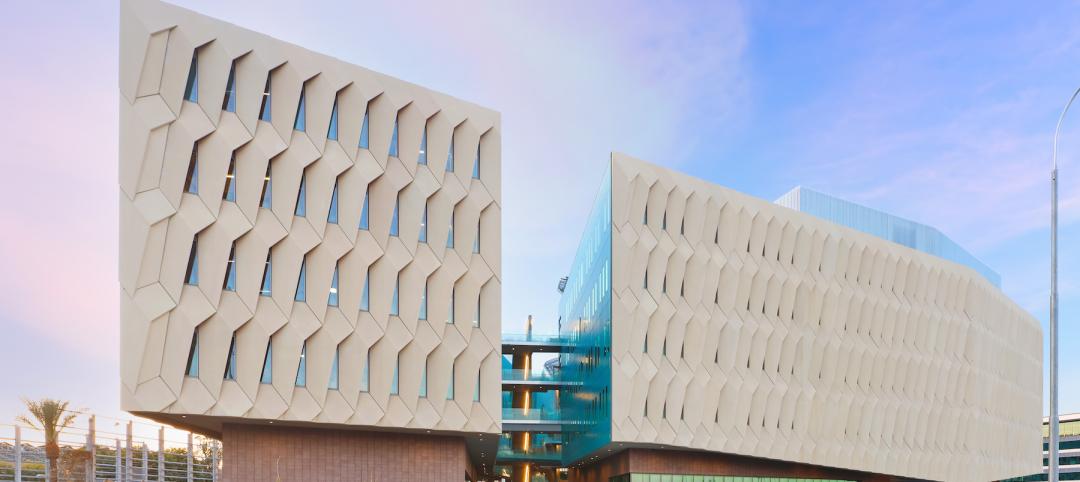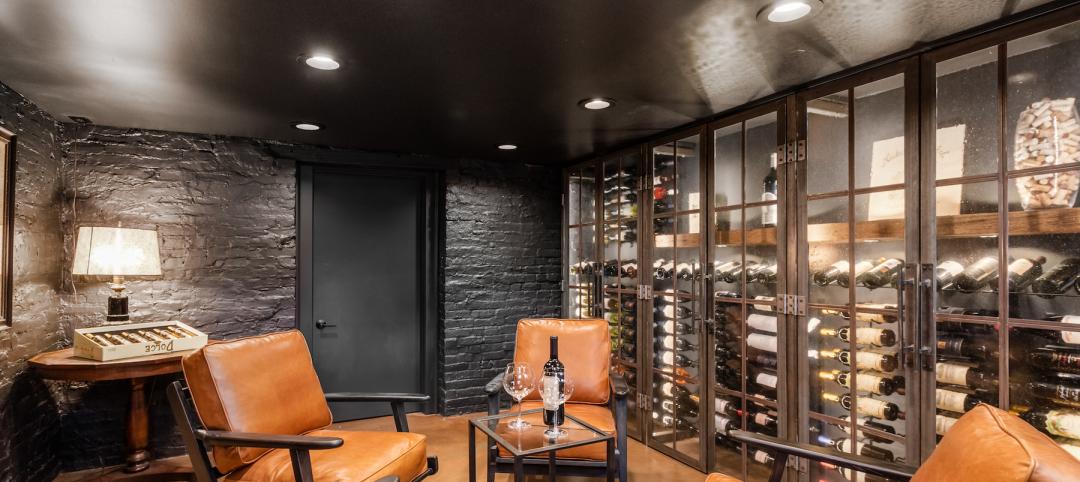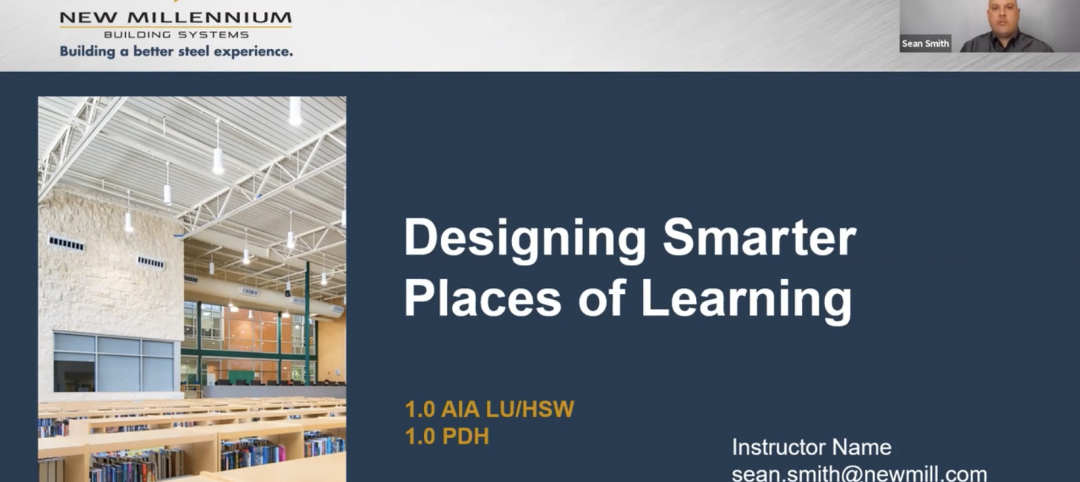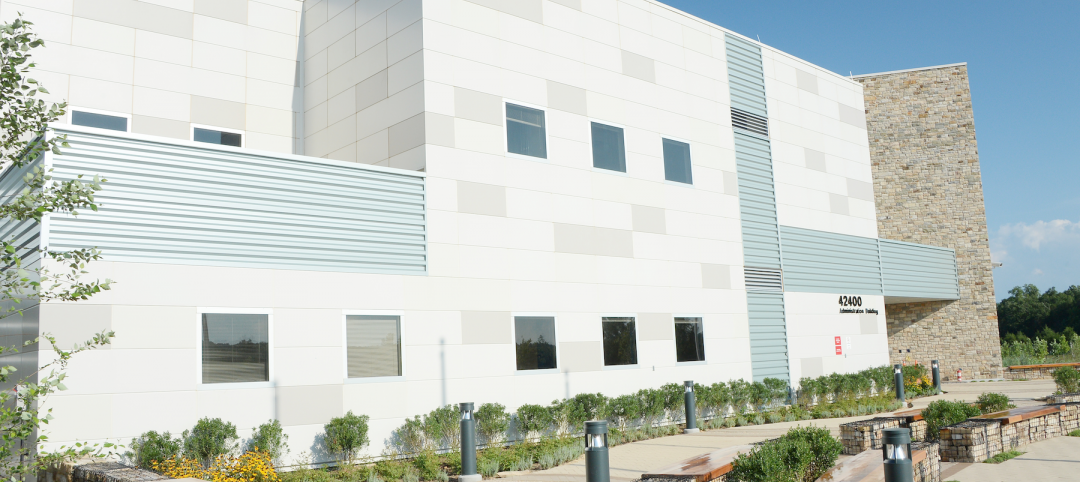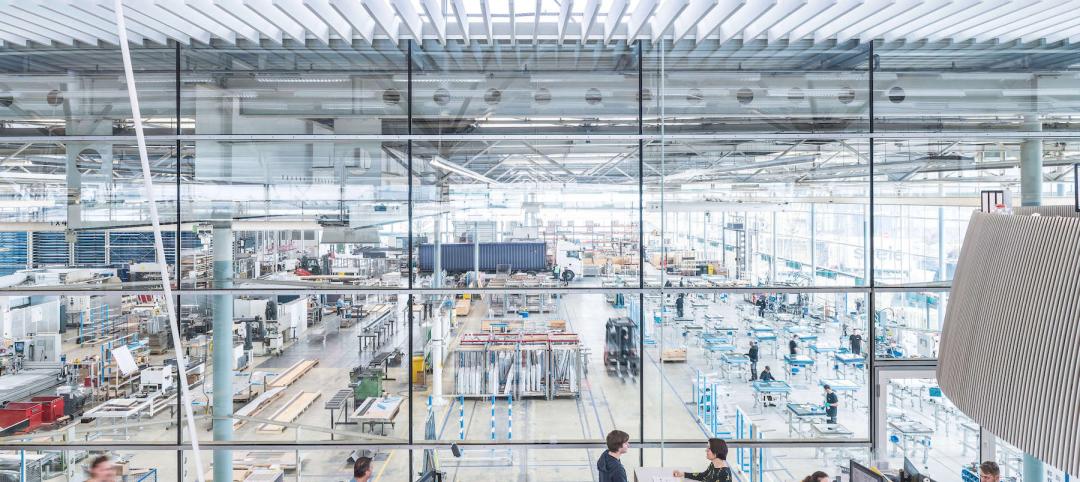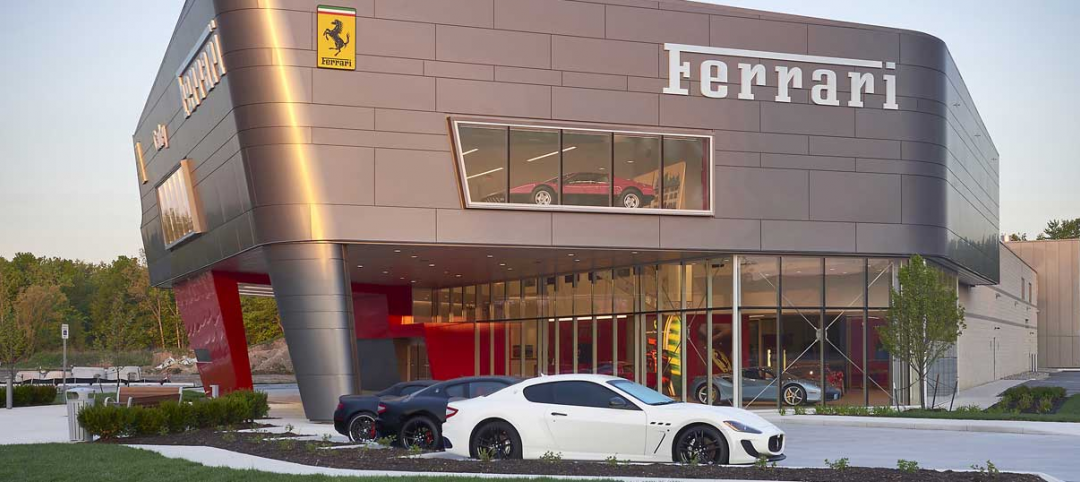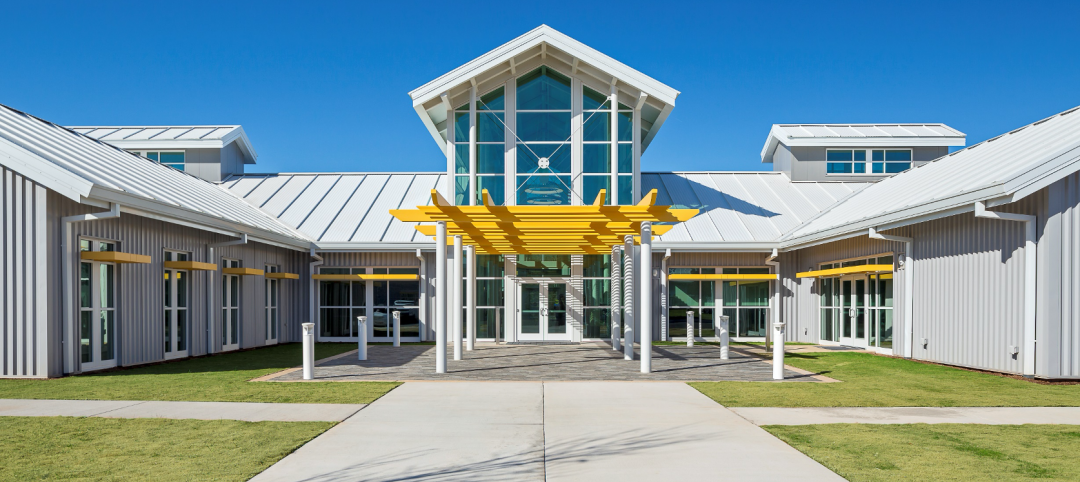Among the most fundamental of architectural elements is the roof. Its principal purpose is to shelter a building’s occupants, contents, and structure from the elements, most critically from precipitation.
While the various layers of the roof assembly play a key role in keeping moisture from infiltrating into the interior, adequate weather protection also depends on the roof’s ability to drain moisture away from the building. If rainwater, snow, and ice accumulate, the moisture can degrade and permeate the roofing assembly.
Not only does standing water negatively impact the performance, integrity, and longevity of the building enclosure, but it also can deteriorate the structural and interior elements the building enclosure is meant to protect.
LEARNING OBJECTIVES
After reading this article, you should be able to:
• Distinguish among various types of low- and steep-slope drainage assemblies and identify design considerations for each system.
• Identify the components of Protected Roof Membrane Assemblies (PRMA), vegetative roofs, and traditional roofs.
• Recognize signs of distress or potential problems and trace the issue to the primary design or installation shortcoming.
• Prepare a schedule of routine maintenance and repair that can proactively identify emerging problems.
TAKE THIS FREE AIA CES DISCOVERY COURSE AT BDCUNIVERSITY.COM
Related Stories
Sponsored | BD+C University Course | Aug 24, 2022
Solutions for cladding performance and supply issues
This course covers design considerations and cladding assembly choices for creating high-performance building envelopes — a crucial element in healthy, energy-efficient buildings.
Sponsored | | Aug 4, 2022
Brighter vistas: Next-gen tools drive sustainability toward net zero line
New technologies, innovations, and tools are opening doors for building teams interested in better and more socially responsible design.
Sponsored | BD+C University Course | May 10, 2022
6 steps to designing a modern wine display
Design-focused wine displays are becoming increasingly popular in amazing residential and commercial properties throughout the world. Top design/build professionals are using stylish wine racks and other premium materials to create wine cellars that are too beautiful to hide in out-of-the-way places like dusty basements. This course explains why wine cellars have become so popular and the key aspects of designing an appealing modern wine cellar, broken into six planning steps that should be considered during pre- or early-construction phases.
Sponsored | BD+C University Course | May 10, 2022
Designing smarter places of learning
This course explains the how structural steel building systems are suited to construction of education facilities.
Sponsored | Multifamily Housing | May 8, 2022
Choosing the right paver system for rooftop amenity spaces
This AIA course by Hoffmann Architects offers best practices for choosing the right paver system for rooftop amenity spaces in multifamily buildings.
Sponsored | BD+C University Course | May 5, 2022
Designing with architectural insulated metal wall panels
Insulated metal wall panels (IMPs) offer a sleek, modern, and lightweight envelope system that is highly customizable. This continuing education course explores the characteristics of insulated metal wall panels, including how they can offer a six-in-one design solution. Discussions also include design options, installation processes, code compliance, sustainability, and available warranties.
Sponsored | Healthcare Facilities | May 3, 2022
Planning for hospital campus access that works for people
This course defines the elements of hospital campus access that are essential to promoting the efficient, stress-free movement of patients, staff, family, and visitors. Campus access elements include signage and wayfinding, parking facilities, transportation demand management, shuttle buses, curb access, valet parking management, roadways, and pedestrian walkways.
Sponsored | BD+C University Course | May 3, 2022
For glass openings, how big is too big?
Advances in glazing materials and glass building systems offer a seemingly unlimited horizon for not only glass performance, but also for the size and extent of these light, transparent forms. Both for enclosures and for indoor environments, novel products and assemblies allow for more glass and less opaque structure—often in places that previously limited their use.
Sponsored | BD+C University Course | Apr 19, 2022
Multi-story building systems and selection criteria
This course outlines the attributes, functions, benefits, limits, and acoustic qualities of composite deck slabs. It reviews the three primary types of composite systems that represent the full range of long-span composite floor systems and examines the criteria for their selection, design, and engineering.
Sponsored | BD+C University Course | Apr 10, 2022
Designing with commercial and industrial insulated metal wall panels
Discover the characteristics, benefits and design options for commercial/industrial buildings using insulated metal panels (IMPs). Recognize the factors affecting panel spans and the relationship of these to structural supports. Gain knowledge of IMP code compliance.


![Roofing Drainage Systems [AIA course] Roofing Drainage Systems [AIA course]](/sites/default/files/February%202019%20Roof%20Drainage%20AIA%20course.jpg)

